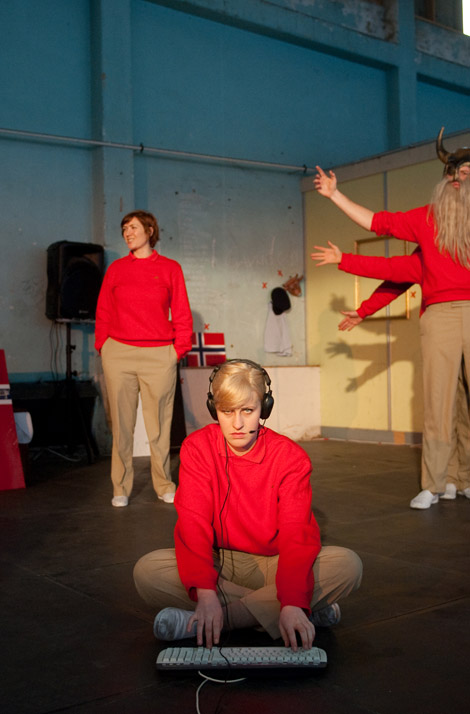14 Feb INTERVIEW w. Tobias Manderson-Galvin on ‘The Economist’ | Brisbane Times

Dark Tales of the Human Psyche
Interview w. Tobias Manderson-Galvin
Natalie Bochenski | Brisbane Times
14 Feb, 2013
In 2011, Tobias Manderson-Galvin was in the middle of writing a play about a character whose acts of violence are borne out of a militant right-wing, conservative, money-hungry political philosophy.
Then he began researching Anders Behring Brevik, the man who had just committed an atrocious massacre in Norway, taking 77 lives in a bombing in Oslo and a gun rampage on Utoya island.
“He seemed to fit all of the character traits I was looking for,” says Manderson-Galvin.
The 28-year-old says he was intrigued by the language used to describe Breivik, and the way Western society seemed to absolve itself of any responsibility for producing him.
“This man was a lone-wolf killer, and a psycho, but had it been a Muslim person, it would’ve been different,” he says.
“It is funny that no one was expected to take responsibility for Anders Brevik, or if anyone is, it’s a psychiatric institution, not the people who share his ideology.”
Thus The Economist was born, the first play written in response to the Norway attacks with material drawn heavily from Brevik’s own diaries.
It was a product of MKA: Theatre of New Writing, a group Manderson-Galvin co-founded with fellow playwright Glyn Roberts, and after stirring controversy at its premiere in Melbourne, it travelled to the 2012 Edinburgh Festival Fringe to top reviews. It’s now playing as part of the World Theatre Festival at the Brisbane Powerhouse.
Manderson-Galvin says it’s not a realistic telling of Brevik’s story, more a series of nightmares and their consequences for main character Andrew, whose life is dominated by neo-fascism, plastic surgery and World of Warcraft.
It’s an entertaining, if disturbing, 65-minute ride through a human psyche at its worst.
Manderson-Galvin finds it intriguing that some people wonder why an Australian company would focus on a European event, and points out that Brevik cited John Howard and Peter Costello in his manifesto, and praised the writings of Australian historian Keith Windschuttle.
“If you’re not particularly engaged with the rest of the world it can be easy for us to forget that we exist and we can have an impact overseas,” he says.
“People make the mistake of thinking things are fine here, we’re comfortable, and sure there are people with extreme ideas on both sides, but none of them have a great deal of impact.
“Well, clearly they do … and whilst these ideologies are at work here in Australia, they’re affecting the way we all live.”
Manderson-Galvin rejects the idea it was “too soon” to deal with such an atrocity, comparing theatre to journalism in having a role in questioning and analysing current events. He wants it to prompt discussion.
“Just go and have a chat in the bar,” he laughs.
